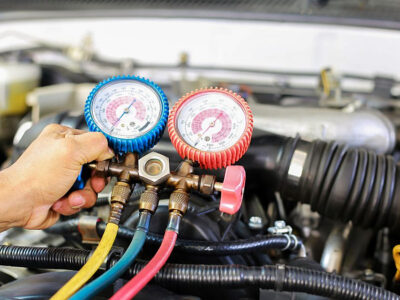
People buy commercial vehicles for the sole purpose of actively exploiting them. Manufacturers have understood this for a long time, so they are trying to produce simple but reliable trucks that can serve their owners faithfully, even if bought used.
However, commercial vehicles will last a long time only if properly maintained. Before a truck or van reaches its end user, manufacturers spend many years perfecting technologies, and engineers conduct numerous tests. Therefore, the probability of technical malfunctions is low. And if a relatively new car needs repair, then, most likely, the human factor is to blame. The Indianapolis experts from Indy Auto Man share several main mistakes commercial vehicle owners make when operating their vans and trucks.
Too Much Load
The most common mistake is overloading the car. As a rule, this mistake is typical for the owners of cargo vans. They forget that the manufacturer has provided the maximum allowable cargo weight with some margin. Unfortunately, in busy working conditions, the owners of such vehicles try to squeeze everything out of the car and load as much cargo as it fits. If such a careless attitude is intermittent, then the owner has a chance to avoid serious problems.
However, if the overload is regular, and the vehicle operates on roads with poor coverage, the brakes, and many suspension elements will fail sooner than expected. That is why experts recommend selling a cargo van if its capacity is not enough and buying a more suitable one to save on costly repairs and avoid downtime.
Low-Quality Fuel and Oil
As a rule, the human factor determines most malfunctions in commercial vehicles. The vehicle’s manual clearly states what fuel it requires, how often the oils need to be changed, etc. It would seem that everything is simple, but, as practice shows, in pursuit of savings, US drivers do not think about the consequences, and the day comes when they have to spend significant amounts on repairs.
Modern engines are sensitive to fuel quality. Filters, fuel pumps, and injectors become clogged from cheap diesel fuel very quickly. Old or low-quality oils can cause similar damage. Typically, commercial vehicle manufacturers set maximum oil change intervals. As oils reach the end of their service life, they lose their lubricating properties. If this period is not observed, the oils cease to perform their function, and as a result, automotive parts wear out faster. There have been cases when owners of commercial vehicles were denied warranty for not showing up for inspection, as such negligence was considered a violation of the manufacturer’s demands. Therefore, it is better to change the oils according to the auto producer instructions and not take risks.
The quality of oils is also relevant for vehicles that are not covered by warranty service. If the truck owner used high-quality oils during the warranty period but then decided to save money and began to fill in cheap analogs, the result will be the same—the lubrication of the nodes will be poor, and they will wear out faster. Motorists should understand that quality oils are more expensive because they prolong engine life.
Amateur Service and Negligence
The most embarrassing malfunctions appear due to careless attitudes and amateur upgrades. A simple example – the factory wiring works flawlessly, but for some reason, the driver decides to decorate the van with additional lamps and does this without observing technological requirements. As a result, new holes appear in the car, and sometimes even the body is damaged, which leads to corrosion.
Drivers should also follow the signals of the lights located on the dashboard. Some do not pay attention not only to the orange but also to the red ones. The result may be deplorable – engine overheating and expensive repairs.
Proper Maintenance Is the Key
Manufacturers have long recognized the importance of producing simple yet reliable commercial vehicles to meet the demands of their customers. However, maintenance must be carried out regularly, as indicated in the manufacturer’s instructions – then many problems, including unforeseen visits to service stations, can be avoided. In addition, if the owner takes the car to a non-authorized station, he needs to make sure that the servicemen know the manufacturer’s maintenance requirements. Wish to avoid risks, schedule regular inspections on the prominent dealer center.












